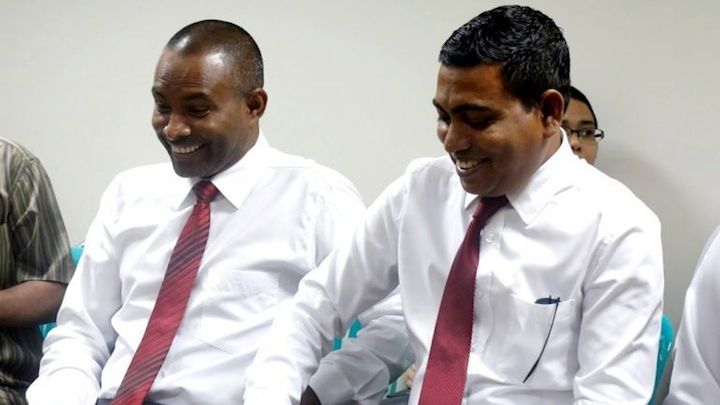Two judges in Imran’s criminal court trial are part of panel hearing appeal
Two former criminal court judges who presided over the first hearing of Sheikh Imran Abdulla’s trial are among a three-judge High Court panel hearing the Adhaalath Party leader’s appeal of his terrorism conviction. Imran’s trial was stalled in June last year when Judges Abdulla Didi and Shujau Usman were promoted to the High Court.

24 Mar 2016, 09:00
Two former criminal court judges who presided over the first hearing of opposition leader Sheikh Imran Abdulla’s terror trial are among a three-judge panel hearing the appeal of his conviction.
The appeal hearings began at the High Court today with Judges Abdulla Didi, Sujau Usman and Abdulla Hameed presiding.
Didi and Usman, two former criminal court judges, were promoted to the High Court days after they heard the state’s charges against Imran and ruled that he should be kept in state custody until a verdict was reached. The pair’s transfer stalled the trial for nearly eight months.
Become a member
Get full access to our archive and personalise your experience.
Already a member?
Discussion
No comments yet. Be the first to share your thoughts!
No comments yet. Be the first to join the conversation!
Join the Conversation
Sign in to share your thoughts under an alias and take part in the discussion. Independent journalism thrives on open, respectful debate — your voice matters.




